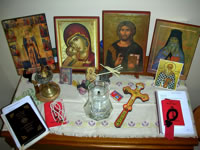This is an address on Walt Whitman and why I love his poetry.
Last
week the poet Michael Rosen wrote this comment:
“I'm
probably jumping the gun a bit here, but the press is full this weekend with
accounts of what is anticipated to appear in the new guidelines for Primary
English.
What seems to be coming up is a requirement that all primary children from the age of 5 should learn poetry by heart.”
What seems to be coming up is a requirement that all primary children from the age of 5 should learn poetry by heart.”
From
the discussions that have been on the radio and television this week Michael
Rosen was correct, as part of his Curriculum reform Michael Gove is suggesting
that all infant and primary aged children should be expected to learn and
recite poetry along with times tables and other facts.
Now
as an ex teacher I can see the value of learning things by rote and that
includes poetry, but when it comes to poetry I am a little unsure as to how it
will affect children’s future attitudes if it is not handled properly. I am sure there are those of us here who can
remember being made to learn verses by heart when we were at school.
I
certainly can, and I never did find it easy.
Times tables I could manage but poetry – well I never did manage to
commit any to memory.
Did
any of you?
And
I wonder how many of you actually read poetry now today and if you do was it
because of this learning experience?
As
this news played out I began to think about where my love of poetry came from –
because as most of you are aware I do love poetry.
Well
it didn’t begin during my school years at all.
No, I know the exact year when I turned to poetry and began to read
it. It was 1989 and I was 40 years
old. It happened when I went to see a
film that was released that year, starring Robin Williams – it was called ‘The
Dead Poets Society’.
In
it Williams plays the part of one John Keating, a rather different teacher of
English, especially poetry.
‘We
don't read and write poetry because it's cute. We read and write poetry because
we are members of the human race. And the human race is filled with passion.
And medicine, law, business, engineering, these are noble pursuits and
necessary to sustain life. But poetry, beauty, romance, love, these are what we
stay alive for. To quote from Whitman, "O me! O life!... of the questions
of these recurring; of the endless trains of the faithless... of cities filled
with the foolish; what good amid these, O me, O life?" Answer. That you
are here - that life exists, and identity; that the powerful play goes on and
you may contribute a verse. That the powerful play *goes on* and you may
contribute a verse. What will your verse be?’
It
was a mixture of those words and the image of Robin Williams striding about
saying call me: "O Captain! My Captain!," in reference
to a Walt
Whitman poem, that set me off reading poetry for the first real time.
Now I must admit I didn’t take to Walt
Whitman’s poetry then, it was, I think, far too American and I didn’t really
understand it.
It
took me finding the Unitarian church, a decade or so later, to begin to
appreciate Whitman. Not that he was a
Unitarian, no he was a Quaker if anything but he has even been called an
atheist. However he did move in
Unitarian circles and was friends with people such as Ralph Waldo Emerson and
Henry David Thoreau.
‘And the Transcendentalist movement, to which Whitman
belonged, was firmly rooted in the Unitarian tradition.
And then, of course, there is his tangential
association with Bolton Bank Street chapel, which has connections with a local
Whitman society, which has been in existence, on and off, for over a century.
In 1887 two Bolton men, J.W. Wallace and Dr. John Johnston, sent birthday
greetings to Walt, and to their great surprise and delight, he responded, and a
regular correspondence – over one hundred letters – ensued, until the poet’s
death five years later. Now, on the nearest Saturday to Walt’s birthday, 31st
May, there’s an annual Whitman walk, in which participants wear sprigs of
lilac, Walt’s favourite flower, and make frequent stops to read from Leaves
of Grass and to drink from a ‘loving cup’. On the Sunday following there is
a service in Bank Street Chapel, to commemorate the Whitman Society’s
association with the Unitarian movement.

What is it in
Whitman’s poetry that was so appealing to the Unitarians of 19th
century Lancashire and to contemporary Unitarians worldwide? One reason is his independent, almost revolutionary,
spirit. His poetry, in both style and content, is radically new. His verse is
free, direct, accessible, untrammelled by conventional decorative features such
as rhyme and rhythm. Emerson recognised that Whitman’s was the first
authentically American poetic voice. Before him, American writers, including
Emerson himself, had copied European models, but Walt struck out on his own.
‘Resist much, obey little,’ his words of advice to the American states, could
be taken as the motto of his own life and his own work.’ (Bill Darlison)
Walt
Whitman is not an easy read, his poetry is full of uncomfortable things and a
lot of it was not allowed in print at first because it is sexually
explicit. Also his poems are extremely
long and I certainly wouldn’t recommend trying to read them whole but maybe try
dipping in and you find such wonderful delights as:
A noiseless patient spider,
I mark’d where on a little promontory it
stood isolated,
Mark’d how to explore the vacant vast
surrounding,
It launch’d forth filament, filament,
filament, out of itself,
Ever unreeling them, ever tirelessly
speeding them.
And you O my soul where you stand,
Surrounded, detached, in measureless oceans
of space,
Ceaselessly musing, venturing, throwing,
seeking the spheres to connect them,
Till the bridge you will need be form’d,
till the ductile anchor hold,
Till the gossamer thread you fling catch
somewhere, O my soul.
And
it is verses such as that second one that call out to me now as they speak of
the soul. How Whitman can be called an
atheist I do not know for his poems are full of the soul.
Audrey
Addison Williams says: “My prayer for
all of humanity is that we learn to live from a place of "soul". In
my work, I am stunned by the number of people who have no idea about the
longings of their heart and soul. They live like robots, doing almost
mechanically what they feel they must do. Than we spend billions on medicine
and doctors trying to figure out why we are in so much pain. Today, listen to
your heart, connect with your soul. Your soul has all the wisdom you shall ever
need. “
Whitman’s
most famous poem, that I read from in our reading is the ‘Song of myself’ and
it is full of words of wisdom that speak of life, of love and for me of God.
Those
words at the end of that verse I read:
“I hear and behold God in every object, yet understand God not in the least,
Nor do I understand who there can be more wonderful than myself.
Why should I wish to see God better than this day?
I see something of God each hour of the twenty-four, and each moment then,
In the faces of men and women I see God, and in my own face in the glass,
I find letters from God dropt in the street, and every one is sign'd
by God's name,
And I leave them where they are, for I know that wheresoe'er I go,
Others will punctually come for ever and ever.”
Others will punctually come for ever and ever.
These words sum up
my whole theology. His God is probably not the God
of Christianity, but Whitman’s poetry is drenched in what we might call
God-consciousness. As the Rev Bill Darlison says:
This may be pantheism, deism, panentheism, it may even to some be
considered blasphemous, but it is certainly not atheism. Whitman has no belief
in a static revelation; the genius behind all the great religions is the
inexhaustible genius of the human race which is as active now as ever it has
been. He doesn’t object to special revelations, but, he says he considers ‘a
curl of smoke or the back of my hand just as curious as any revelation.’[Song
of Myself] The simplest creature is a manifestation of God, a
miracle, a revelation:
I believe a leaf of grass is no less than the journey
work of the stars...
And the narrowest hinge of my hand puts to scorn all
machinery.....
And a mouse is miracle enough to stagger sextillions
of infidels.
Seize
the day.
Just
opening my book of Whitman’s poems at random the poem I found was this:
|
DAREST thou now, O Soul,
|
|
|
Walk out with me toward the Unknown Region,
|
|
|
Where neither ground is for the feet, nor any
path to follow?
|
|
|
|
|
|
2
No map, there, nor guide, |
|
|
Nor voice sounding, nor touch of human hand,
|
|
|
Nor face with blooming flesh, nor lips, nor eyes,
are in that land.
|
|
|
|
|
|
3
I know it not, O Soul; |
|
|
Nor dost thou—all is a blank before us;
|
|
|
All waits, undream’d of, in that region—that
inaccessible land.
|
|
|
|
|
|
4
Till, when the ties loosen, |
|
|
All but the ties eternal, Time and Space,
|
|
|
Nor darkness, gravitation, sense, nor any bounds,
bound us.
|
|
|
|
|
|
5
Then we burst forth—we float, |
|
|
In Time and Space, O Soul—prepared for them;
|
|
|
Equal, equipt at last—(O joy! O fruit of all!)
them to fulfil, O Soul.
|
I
could go on - there are so many poems that cry out to be read. But do I read them because I was made to
learn poems by heart as a young child?
No I read them because as an adult I have come to poetry myself. I have travelled in my own way just as Walt
would have wanted me to because as he said:
“
No one is going to do the hard work for you, you must find the meaning of your
life & your destiny yourself.”
And
so it must be for our children too.
So
May it be
Amen

